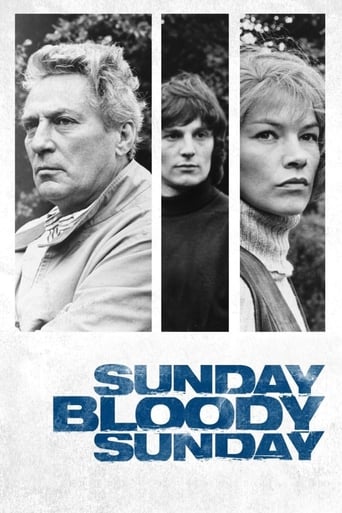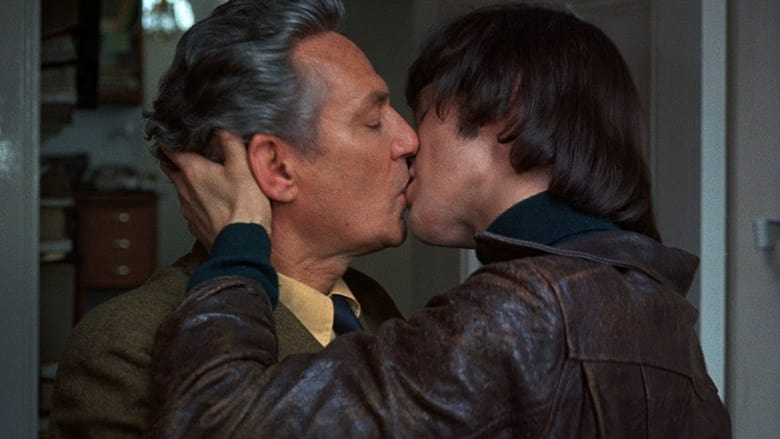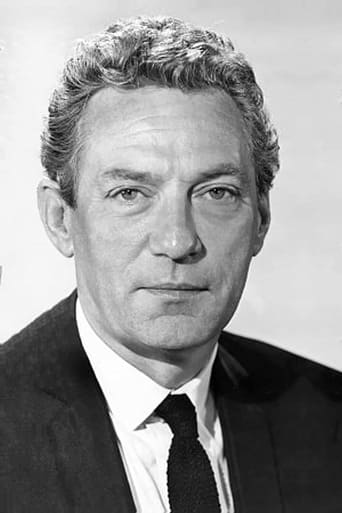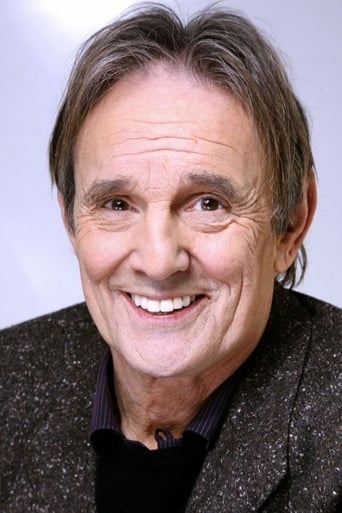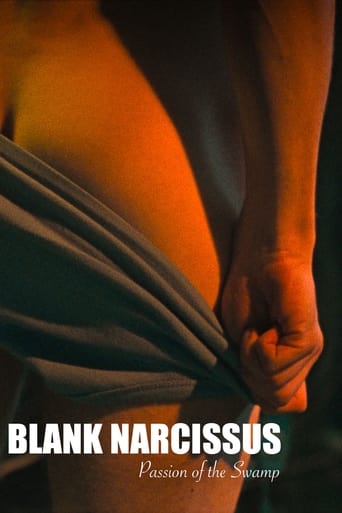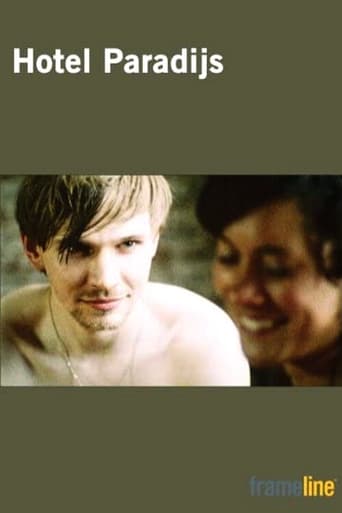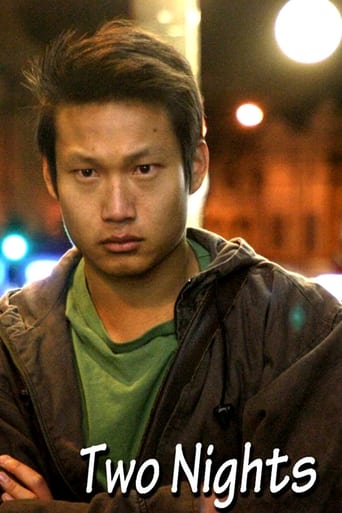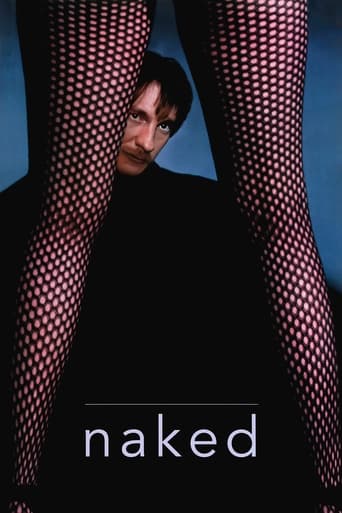Sunday Bloody Sunday (1971)
Recently divorced career woman Alex Greville begins a romantic relationship with glamorous mod artist Bob Elkin, fully aware that he's also intimately involved with middle-aged doctor Daniel Hirsh. For both Alex and Daniel, the younger man represents a break with their repressive pasts, and though both know that Bob is seeing both of them, neither is willing to let go of the youth and vitality he brings to their otherwise stable lives.
Watch Trailer
Cast
Similar titles
Reviews
I love this movie so much
Excellent but underrated film
I am only giving this movie a 1 for the great cast, though I can't imagine what any of them were thinking. This movie was horrible
It's the kind of movie you'll want to see a second time with someone who hasn't seen it yet, to remember what it was like to watch it for the first time.
With a title like Sunday Bloody Sunday, you'd expect something explosive. Instead, this is a very quiet and internal character piece, but it is surprisingly effective in a lot of ways. Daniel Hirsh (Peter Finch) and Alex Greville (Glenda Jackson) are two Londoners connected by their individual relationships with the young Bob Elkin (Murray Head). Both of them want all of Bob, but he refuses to let himself settle down with one and thus they both must settle for a portion of what they really want.This is the focal point of the plot, but the film strives for a much more universal theme about the world and what true happiness actually means. It seems to say that it doesn't exist, or at least that to hope for it is futile. These two characters are forced to ask themselves the question of whether having no joy is better than having some, but not all. It's a very innovative character study that is ahead of it's time not only in it's themes, but also in it's honest portrayal of these characters (along with how it played a gay relationship in the same way that it played a straight one). There are never any melodramatic shouting matches or violent rages; everything is played in a much more honest and passive fashion.Director John Schlesinger creates a compelling and fully lived-in tone, making us feel as though we are just watching human beings rather than actors portraying characters. This no doubt comes with the help of the superb performances from Finch, Jackson and Head. Finch and Jackson in particular are forced to have the whole weight of the film's theme on their shoulders, but their internal work is brilliant. Within them there is such heartbreak and the way they display their utter loneliness on their worn faces is wrenching, but there's also a slight hope to them by the end. Finch has a monologue at the end that brought a tear to my eye with it's simultaneous sensations of remorse and hopefulness.The film sparingly uses flashbacks, but when it does they do a nice job of getting us into the character's heads without relying too much on them. Instead, Schlesinger lays the film on Finch and Jackson and they deliver in spades. Two tremendous performances in an excellently drawn film. It leaves a lot up to the audience, letting things play out naturally and without exaggeration. It's also got Daniel Day-Lewis in his brief, uncredited, first screen appearance.
Well-off Jewish doctor Daniel and middle-aged divorceé Alex have two things in common... their phone-service and the deep love they both feel. For Bob, the young artist. They both realize that they are sharing him, and the situation isn't entirely to the liking of either of them. But they fear stirring the pot, as they might lose him entirely. They both clearly have difficulty with being left by him(perhaps her more than him), something the enthusiastic Elkin either doesn't understand or doesn't care about. This is a mature piece on relationships(note the immense difference between how the two generations behave towards their partner) and sexuality(and this is rather direct and unapologetic, as well as never gratuitous, in its depiction thereof). It focuses on the emotions and the attachment, and it will not appeal to everyone. There are those who will call it slow and uneventful. In reality, it is not about grand occurrences, it's about little moments, mood and character interplay. The writing is excellent. Dialog is meaningful and impeccably delivered. The acting is strong from the leads, and no one is bad. Even the children are pretty good. The music is great, if at times overbearing. This is dated, but not necessarily in a bad way; it gives us the 70's, for better or for worse. Environments of politics, family life, drugs, homosexuality are explored. The DVD comes with a trailer for this. I recommend this to anyone who finds what I describe here engaging. 7/10
John Schlesinger's Sunday Bloody Sunday is social realism, as seemingly unusual as its scenario is and however much poetic license the script and direction take. Yes, it defies all perceived social convention. We follow a triangular sexual relationship comprised of a man and a woman, both middle-aged, and another man, much much younger. There is a scene where young children innocently smoke a joint after breakfast, because they know where their out-of-town parents keep it. But the lack of permanence implicitly shown in mercilessly intimate scenes of parties, workplace conflicts, doctors' appointments, bar mitzvahs, et al, are concerned with the politics of the personal rather than the traditional. It's an exploration of characters at crossroads in their lives, those roads intertwined.The screenplay by Penelope Gilliatt takes us through eight or nine days, while a young man, played very becomingly by British singer Murray Head, plans to leave for New York. Both of his lovers will miss him, and I guess he will miss them, in his own way, yet he has chosen to go, and between them, they don't entice him enough to make him want to stay. So the two love affairs begin their dissolution, while the lovers go about a moody everyday life in a London mostly comprised of frigid twilights. An aria from Mozart's comic opera Cosi fan Tutte is played on the soundtrack with ironic detachment. And then there is Mendelssohn's utterly romantic On Wings of Song, its minor key tonality embraced.Both the doctor and the woman are concerned with helping people, he by an altruistic and astute way with his patients, she through working in an employment agency. The boy however gives the impression of being solely absorbed in the marketing possibilities in America for his ultra-modern sculpture. He isn't even worried whether his stuff is any good, but whether it will sell to Americans. Indeed, he doesn't appear to feel very intensely about anything. He is nice enough and open enough, but there is no range to him, as there is to his lovers.Played with perfect pitch in deservedly Oscar-nominated performances by both the great Peter Finch and Glenda Jackson, it is with these two older characters that we get to the nerve center of the story. They survive in a lose-lose world by adjusting themselves to life as it must be lived, such as how Finch, the doctor, not at all internally bothered by his homosexuality, doesn't disclose it to his opaque Jewish family. Continuing fraternization as usual with them is another way for him to survive. Jackson says late in the film, "Some people believe something is better than nothing, but I'm beginning to believe that nothing can be better than something." Well, possibly so, but we get to know her well enough to reckon that she will shake on something, not nothing, once more the next time.That they're inclined to share him is maybe a tell: They share him not because they're inclined to accept half, but because they're apprehensive about going for all. The three-sided understanding is somewhat an assurance that no one will get in so far that being refined won't be barrier enough against heartbreak. It's the ultimate moral dichotomy in liberalized society: The philosophy of whatever works, but that can hurt people. Yet don't people suffer when bound by convention too? We are free to do what we want, but then people still choose to do what they don't want to do at all.Look at the scene where the young man and his female lover, who is watching her friends' children, and they have a fun time in a park by a church, which unexpectedly and senselessly leads to a tragic accident involving their dog: The kids are all having happy reckless fun, but there are casualties. The little girl disobeys, but she's a little girl in the throes of fun. Her dog's accident is nevertheless her fault. With pleasure, blameless or not, there is always pain, intended or not.
Three of the British Film Industries finest artists are in peak form for this somber tale about uncommitted relationships and coping. Londoners Alex Greville (Glenda Jackson) and Dr.Daniel Hirsh. (Peter Finch) are both intimately involved with an impetuous young artist Bob Elkins (Murray Head). They would both like something more permanent but Elkins prefers his carefree existence as he moves from bed to bed with some but little concern for each partner's feelings. The story moves back and forth from Greville's life to Hirsh's dealing with their everyday existence and the people they come in contact with in 70's London. They are fairly common lives and there is little excitement to this film which ends without resolving much. Yet it is an engrossing and highly polished piece of cinema featuring brilliantly controlled performances by Jackson and Finch. They are wonderfully ordinary, with foibles and bad judgment at times but overall decent and quietly desperate like most of the human race. Director John Schlesinger provides a great stage for his actors but he also manages to nicely incorporate the London scene in which they exist with striking imagery and the same mesmerizing flash back jump cutting that powered Midnight Cowboy. There are times it can be disjointing but overall Schlesinger succeeds with his depiction of decaying society as he did with New York in Cowboy and would with Hollywood in Day of the Locust. In his prime as he was here, Schlesinger was a master of social commentary and blending character to their environment. Sunday is challenging but worth it.
